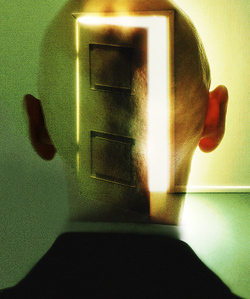|
|
 We’ve all seen it happen. You’ve got a great idea. Not creative for creative sake, but a strategy that will really spike sales in your company, attract the perfect employee or get a client’s business to a different level.
We’ve all seen it happen. You’ve got a great idea. Not creative for creative sake, but a strategy that will really spike sales in your company, attract the perfect employee or get a client’s business to a different level.
But the idea isn’t what people are expecting. In fact, it might make them downright uncomfortable. Or maybe it’s counter intuitive to your entire industry.
Having the idea isn’t enough. You have to sell it. Often times, the better the idea, the harder to sell.
Keep these things in mind when you’re teeing up an idea you really want to save from the trash bin.
They didn’t go on the journey with you. You can’t just show them the finish line. You have to go back to the starting point and walk the path with them. Show them all the different options you explored and why this one kept showing up as the winner.
No idea is perfect. Don’t sugarcoat or over protect your idea. You should know the dangers or weaknesses. Why not present them before anyone else does? Bring up the downsides and your solutions for mitigating them.
Know the difference between a single battle and the war. If your idea doesn’t get the support you wanted in the first presentation, that doesn’t mean it’s over. Sometimes people need to let an idea simmer for awhile before they can support it. Or, if may require another conversation to help them see the logic behind what you’re proposing.
Eric Karjaluoto at Ideas on Ideas recently wrote about how his agency presents ideas to a client or prospect and how they give them a fighting chance.
What other tips can you add to the mix?
P.S. Taking a detour here. Okay, admit it. Don’t you think this is what the back of Seth Godin’s head looks like?
